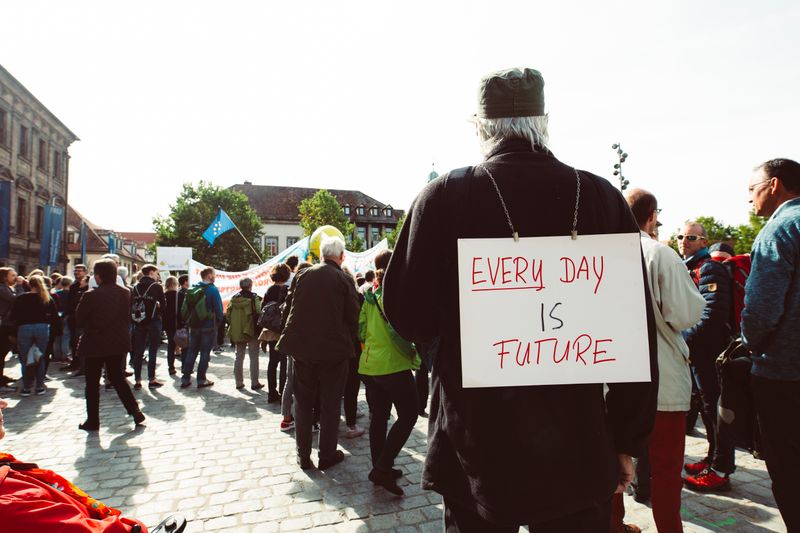Hypocrisy in Andrews Government‘s Stance on ‘One of Our Worst’ Killers
Legislating Against Individuals Sets a Dangerous Precedent
The recent refusal of the Andrews government to back a law that would keep serial killer Paul Denyer behind bars for life has sparked a debate on the issue of hypocrisy in our justice system. While legislating against individuals may seem tempting in cases as egregious as Denyer’s, it also sets a dangerous precedent that undermines the principles of justice and fairness.
The Smack of Hypocrisy
Denyer, also known as the “Frankston Serial Killer,” committed a series of brutal murders in the 1990s, targeting young women. His crimes were heinous and caused great shock and fear within the community. Understandably, there is a desire to ensure that he remains incarcerated for the rest of his life so as to protect society from any potential harm he may pose.
However, the refusal of the Andrews government to support legislation that would guarantee Denyer’s life imprisonment raises questions of hypocrisy. The government has been vocal in their opposition to other killers being released from prison, describing them as “some of our worst.” Yet, when faced with the opportunity to permanently keep Denyer behind bars, they hesitated.
This contradiction has not gone unnoticed, and many are questioning the motivations behind the government‘s decision. Some argue that it is politically motivated, as the government may fear backlash from those who oppose the idea of legislating against individuals. Others believe that it is a genuine belief that such legislation undermines the principles of our justice system.
The Slippery Slope of Legislating Against Individuals
Legislating against individuals goes against the fundamental principles of our justice system, which is based on the idea that individuals should be judged on their individual actions and circumstances. While it can be tempting to single out certain individuals, such as serial killers, and subject them to laws designed specifically for them, it opens the door to a slippery slope.
If we start legislating against specific individuals, where do we draw the line? Who decides which individuals are deserving of such legislation? And how do we ensure that this power is not abused or misused? These are difficult questions that require careful consideration.
Additionally, such legislation undermines the possibility of rehabilitation and redemption. While it may be difficult to imagine a serial killer like Denyer being capable of reform, the possibility should always remain open. By locking individuals away for life and denying them any chance of redemption, we remove the hope for change and growth.
Editorial: Striking a Balance Between Justice and Rehabilitation
The case of Paul Denyer raises complex ethical and philosophical questions about our approach to criminal justice. It forces us to confront the tension between the desire for justice and punishment, and the belief in rehabilitation and the possibility of change.
While the crimes committed by Denyer are undoubtedly abhorrent, it is important that we do not abandon the principles that underpin our justice system. Striking a balance between punishment, deterrence, and rehabilitation is a delicate task, but it is one that we must navigate if we are to maintain a fair and just society.
In cases as extreme as that of Denyer, it is understandable that emotions run high, and the desire for retribution is strong. However, we must resist the urge to succumb to knee-jerk reactions and instead rely on evidence-based approaches and a commitment to justice that encompasses both punishment and the possibility of rehabilitation.
Advice for the Andrews Government
To the Andrews government, it is essential to consider the long-term implications of legislation that targets specific individuals. While the desire to protect society and prevent further harm is commendable, it is important to balance this with the principles of fairness, justice, and the possibility of redemption.
Instead of targeting individuals, the government should focus on broader reforms within the criminal justice system. This includes investing in rehabilitation programs, providing support to those exiting the prison system, and addressing the root causes of crime, such as poverty, inequality, and social exclusion.
By taking a comprehensive and evidence-based approach to criminal justice, the Andrews government can demonstrate a commitment to both public safety and the principles that underpin our society.

<< photo by Una Laurencic >>
The image is for illustrative purposes only and does not depict the actual situation.
You might want to read !
- Referendum Plan Secures Senate Approval, Ensuring the Establishment of Voice to Parliament
- PwC’s Controversial Encounter: Caught in the Crosshairs of a Russian Cyberattack
- “PwC’s Defenses Crumble: A Deep Dive into the Consulting Firm’s Role in the Global Cyber Breach”
- “Peter Dutton Urges Senator David Van to Resign Amidst Controversy”
- “Mending the Margins: Andrea’s Journey towards Inclusive Support”
- Salma Hayek bids farewell to the tech world after Black Mirror: An exploration of the actress’s digital burnout
- “Adin Ross Exposes IShowSpeed’s Alleged Role in Cristiano Ronaldo’s Rise to Stardom: The Intricate Web of Influencers and Athletes”
- “Putin Propounds Global Influence in African Mediation Talks”
- Twilight Trouble: Wyndham Clark Strikes Out at US Open’s Late 3rd Round Start
- “The Aussie Ace: Unraveling the Thrilling World of Daniel Ricciardo’s Formula 1 Broadcasts”
- “Battle of the Blues: AFL Showdown Between Carlton and Gold Coast Today – Start Time, Team Lineups, and More”
- “The AFL Showdown: Carlton vs Gold Coast – Game Time, Lineups, and More!”
- “The Rise of Travis Head: From Aussie Underdog to Barmy Army Darling”
- “Controversial Penalty Stifles Aussie’s Fairytale Start in Thrilling Live F1 Race”




